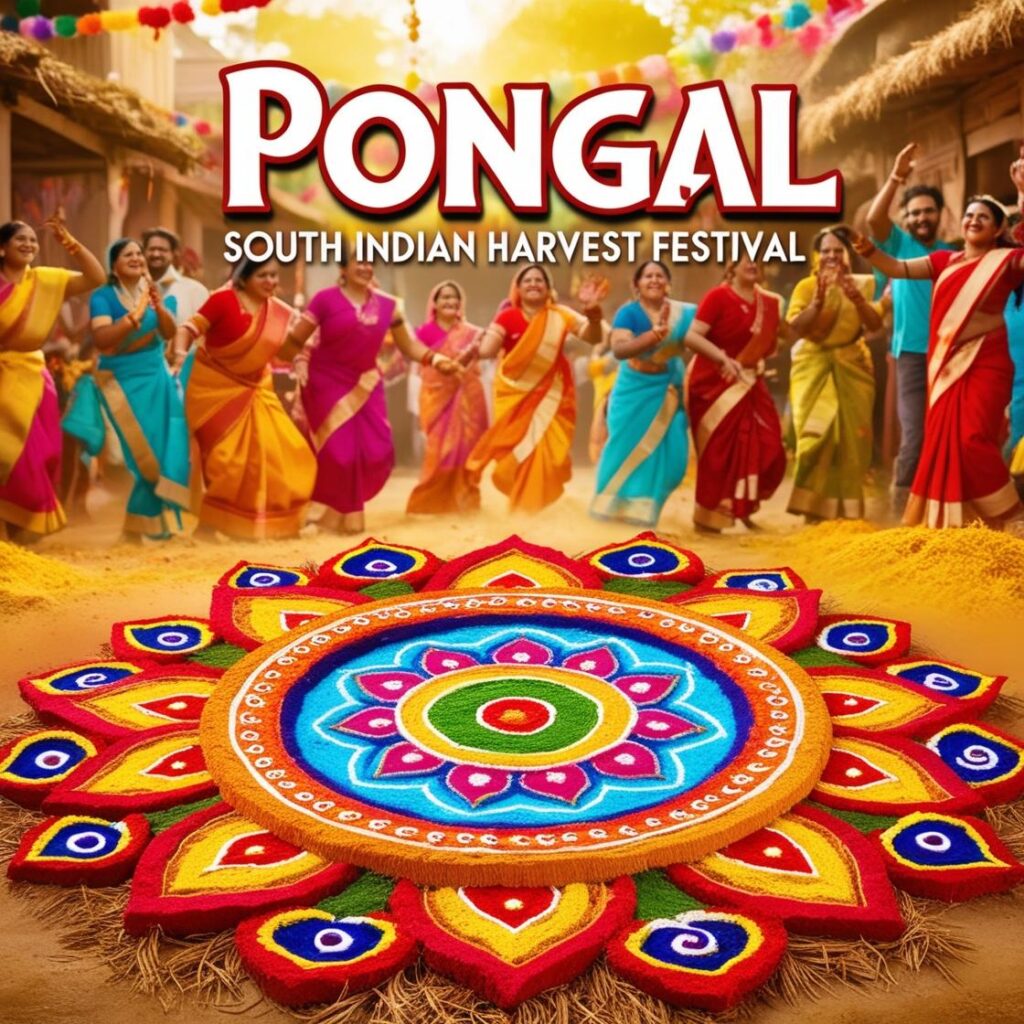
Pongal is a beloved four-day harvest festival celebrated primarily in South India, that honors nature, agriculture, and community. Held annually in mid-January, Pongal marks the beginning of the Tamil month Thai and coincides with Makar Sankranti, a pan-Indian festival welcoming the sun’s journey northward, known as Uttarayana. Rooted in ancient traditions, Pongal is a time of gratitude for a bountiful harvest and a renewal of bonds with family, friends, and the environment. With unique customs and foods, Pongal reflects the harmony between people and nature, the agricultural cycle, and community life.
Historical Roots of Pongal
Pongal’s origins go back thousands of years to ancient Tamil agricultural communities. As a harvest festival, it celebrates the end of the farming season, a time of joy and thankfulness for the success of the crops. Tamil Nadu’s prosperity has traditionally relied on agriculture, making Pongal a festival close to the hearts of farmers and families alike. It’s a way to honor the sun, rain, and cattle that make agriculture possible.
The festival’s name, “Pongal,” comes from the Tamil word “pongu,” meaning “to overflow” or “to boil over,” symbolizing plenty and prosperity. During the festival, a special rice dish named Pongal is made, symbolizing the season’s abundance. In fact, references to the festival are found in ancient Tamil literature, such as the Sangam period texts, highlighting its importance in Tamil heritage.
The Four Days of Pongal and Their Rituals
Pongal spans four days, each dedicated to different customs and expressions of gratitude:
- Bhogi Pongal: The festival opens with Bhogi Pongal, a day for letting go of the old and welcoming the new. People thoroughly clean their homes, discarding unnecessary items in a bonfire, symbolizing the clearing of negative energy. Houses are adorned with kolam, beautiful designs made of rice flour, inviting positivity and prosperity. Bhogi Pongal reflects renewal, preparing families for the season ahead.
- Thai Pongal: The second day, Thai Pongal, is the most important and centers on honoring the sun god, Surya, for providing warmth and life. Families gather outdoors to cook a special dish also called Pongal, made of fresh rice, milk, and jaggery. This dish is traditionally cooked in a clay pot until it overflows, symbolizing prosperity and abundance. After offering the Pongal dish to Surya, families share it with each other and neighbors, fostering a sense of community and togetherness.
- Mattu Pongal: The third day, Mattu Pongal, is dedicated to honoring cattle, especially bulls, which are essential to traditional farming in Tamil Nadu. Farmers show appreciation for their livestock by decorating them with garlands, bells, and turmeric. Some communities also hold traditional bull-taming events, known as jallikattu, as a tribute to strength and courage. Mattu Pongal reflects the bond between people and animals, recognizing the role livestock plays in rural life.
- Kaanum Pongal: The festival concludes with Kaanum Pongal, a day for socializing and visiting family. People spend time with loved ones, visit temples, and share festive meals, emphasizing togetherness. Many enjoy picnics, or take outings, strengthening relationships and celebrating the bonds of kinship and friendship.
Pongal in Modern Times
While Pongal traditions have remained intact, modern celebrations have adapted in urban settings. Many families in cities may no longer farm, but they still honor the core rituals, preparing the Pongal dish and decorating their homes. In urban areas, community events, cultural programs, and traditional music and dance bring people together in shared celebrations.
Pongal has also gained international significance as Tamil communities worldwide celebrate the festival, especially in countries with large Tamil populations like Malaysia, Singapore, the United States, and Canada. Tamil diaspora groups organize gatherings, share traditional dishes, and honor the customs of Pongal, keeping their heritage alive and passing it on to younger generations.
The Spirit of Pongal
Pongal is a festival rooted in gratitude, resilience, and harmony. It reflects the deep connection between people and nature, celebrating the efforts of farmers, the importance of livestock, and the cycles of agriculture. Through cooking, rituals, and family gatherings, Pongal is a celebration of abundance and goodwill, reminding people of the importance of simplicity, appreciation, and the bonds that sustain us. More than a harvest festival, Pongal is a time to pause, reflect, and renew ties with both the natural world and each other.